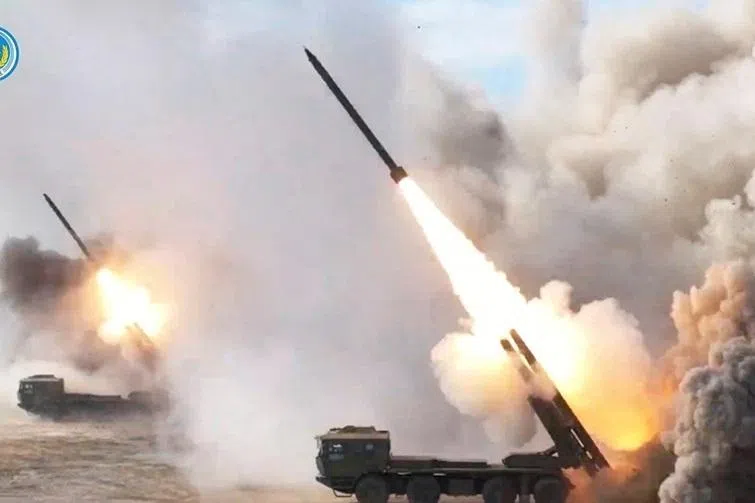National security law for Hong Kong: The US will not back down, so where are we headed?
The proposed national security law for Hong Kong is speedily moving along, with the draft text recently reviewed at the 19th session of the Standing Committee of the 13th National People's Congress. Nonetheless, US researcher Wei Da says that this issue is a trigger point that impinges on bottom lines that could set off serious conflict and repercussions in the Taiwan Strait. Is the onset of a hot war unfolding before our eyes?
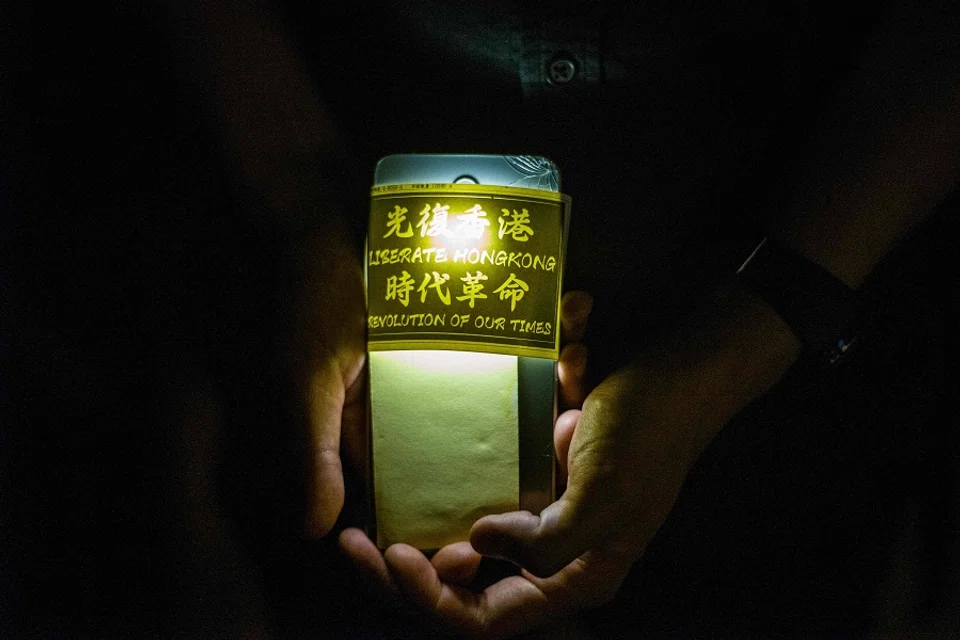
"Bottom-line thinking" has become a fashionable new term in recent years. Let us apply that framework to discussing the hot topics of Hong Kong and Taiwan and take a cold, hard look at the possible implications of these issues causing a showdown between China and the US.
Figuratively speaking, when it comes to the Hong Kong matter, the US will not be first to blink.
Initially, China's bottom line was to abide by the "one country, two systems" principle and keep the status quo unchanged for 50 years (up to 2047) in the case of Hong Kong, and to uphold the Anti-Secession Law in Taiwan.* However, this stance has now become a blur. As there is little reliable and practical information, in-depth and well-grounded analyses and judgements cannot be made.
As for the US, based on its attitude towards the proposed national security law for Hong Kong, it is clear that it will never make a concession. It will impose increasingly harsher sanctions against China until the latter decides to change its course on the matter. Figuratively speaking, when it comes to the Hong Kong matter, the US will not be first to blink.
If the US and the West were to give in, it would be tantamount to acknowledging and making accommodations for Chinese ideology - a prospect that is unimaginable and the stuff of fantasy.
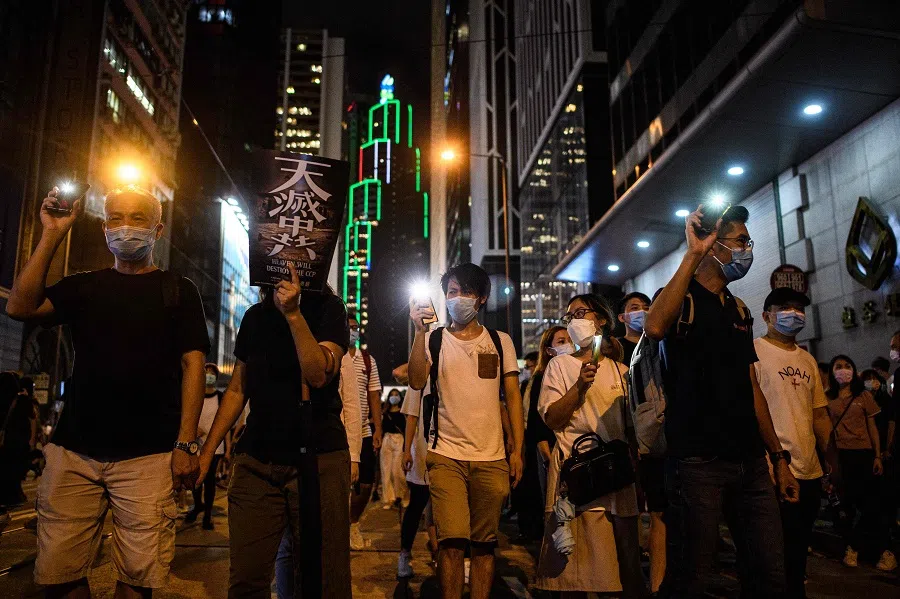
Hong Kong issue has a domino effect
The US and the West will not give in on the Hong Kong national security law matter because they have no choice. The Hong Kong matter is not about national self-determination, a concept that the US has always shown tolerance and understanding for in Asia and China. The Hong Kong matter also does not involve China's sovereignty and territorial integrity. The US only wants China to keep its promise and ensure that the "one country, two systems" principle is upheld and that the status quo remains unchanged for 50 years.
The Hong Kong matter is, in essence, an ideological battle. It involves the basic worldview and value system that the US and the West uphold. If the US and the West were to give in, it would be tantamount to acknowledging and making accommodations for Chinese ideology - a prospect that is unimaginable and the stuff of fantasy.
Hong Kong is also a special buffer region in the Far East for Eastern and Western societies and civilisations. When China reached an agreement with the UK in 1997 and regained sovereignty over Hong Kong, China agreed to retain Hong Kong's capitalist system for at least 50 years. Clearly, this also includes retaining Hong Kong's existing ideology - only then can Hong Kong ensure that its positions as a free port, and a buffer region for the East and the West would remain unchanged.
As the Hong Kong and Taiwan issues are closely intertwined and the stakes are of vital interest, if the US makes a mistake in the Hong Kong battle, a China-US Taiwan war would be imminent.
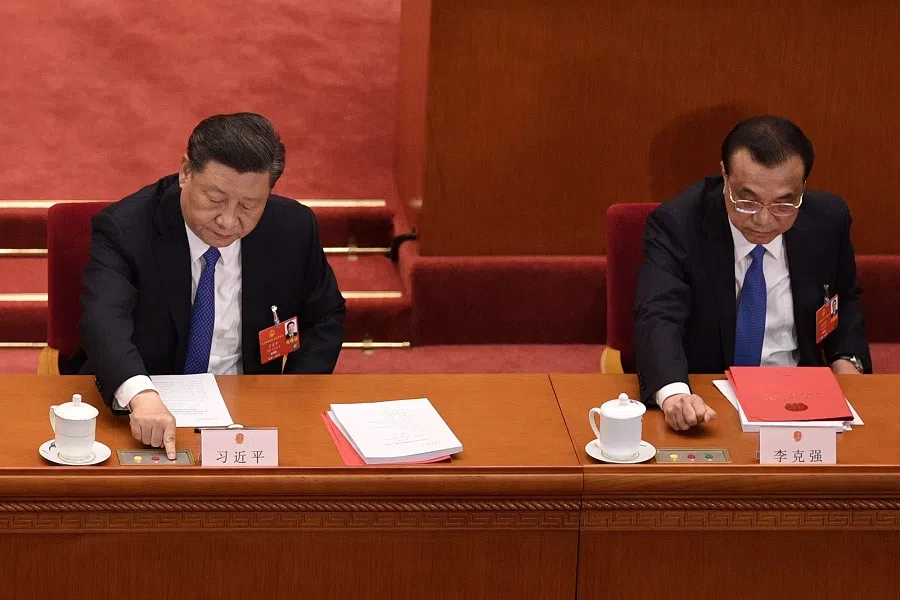
At present, if China tries to forcefully impose a national security law on Hong Kong, the latter would lose its "one country, two systems" ideological characteristic, as well as its status as a buffer region and a free port. The consequences of that would be devastating - once the US and the West compromise on the Hong Kong matter, a hot war with China in the Taiwan Strait would almost be unavoidable. As the Hong Kong and Taiwan issues are closely intertwined and the stakes are of vital interest, if the US makes a mistake in the Hong Kong battle, a China-US Taiwan war would be imminent. This is actually a crisis and tragedy that both China and the US have been avoiding for a long time.
...unless it (China) ensures that Taiwan surrenders without putting up a fight, or is able to destroy Taiwan's defence system and gain effective control over its main strategic support points and key cities within 48 hours, the US, possibly with the participation of Japan, will intervene militarily.
The US and the West think that by directly safeguarding Hong Kong's ideology, they would be indirectly containing and avoiding a military conflict in the Taiwan Strait. As for the "bottom-line thinking" on the Taiwan matter, the US's position is actually not difficult to ascertain. In a situation where the mainland resorts to a forceful reunification with Taiwan, unless it ensures that Taiwan surrenders without putting up a fight, or is able to destroy Taiwan's defence system and gain effective control over its main strategic support points and key cities within 48 hours, the US, possibly with the participation of Japan, will intervene militarily.
Game over once US intervenes in a Taiwan Strait conflict
Based on regular land, sea, and air combat operations, if the mainland is unable to defeat Taiwan within 48 hours and American and Japanese military forces are able to intervene and participate in the war, the mainland would have basically lost all chances of winning. The mainland's decision-makers would then need to decide if they would retaliate against the US and Japan's participation in the war, and how they would do so. If they have already lost the regular war, a nuclear retaliation would be the only alternative left. Once China begins its nuclear retaliation, the US would launch a nuclear counterattack - that would be on the level of a third world war.
It is then not difficult to conclude that it would be in the best interests of both China and the US, and by extension the world, to avoid a military conflict in the Taiwan Strait as much as possible. To achieve this goal, the US and the West would definitely do their utmost to defend and protect Hong Kong's existing political and ideological system and bring the implementation of a national security law for Hong Kong to a complete halt.
It seems that the US's political landscape post-pandemic and pre-elections is headed down the path of a showdown between China and the US, rather than one that alleviates tension between both parties.

Moreover, with the US presidential elections scheduled for the end of this year, presidential candidates of both parties have to display tougher stances on the Hong Kong matter to win votes. The Trump administration has already been criticised by the opposition from time to time for "shirking responsibility and finding scapegoats" on matters such as the China-US trade war, the Huawei ban, and the Covid-19 pandemic.
China's aggressive stance of pushing through the Hong Kong national security law is just the issue that will provide a strong justification for Trump pursuing a new Cold War with China, and ensure that anti-China rhetoric from the opposition's presidential candidate is doubly ferocious. It seems that the US's political landscape post-pandemic and pre-elections is headed down the path of a showdown between China and the US, rather than one that alleviates tension between both parties.
Editor's Note:
*Among the references to one country, two systems" in the text of the Basic Law of Hong Kong, it says in the preamble that "under the principle of "'one country, two systems', the socialist system and policies will not be practised in Hong Kong", and in Chapter 1 General Principles, Article 5 that "the previous capitalist system and way of life shall remain unchanged for 50 years".
Article two of the Anti-Secession Law begins with these lines: "There is only one China in the world. Both the mainland and Taiwan belong to one China."
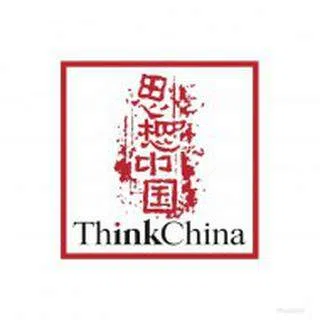


![[Big read] When the Arctic opens, what happens to Singapore?](https://cassette.sphdigital.com.sg/image/thinkchina/da65edebca34645c711c55e83e9877109b3c53847ebb1305573974651df1d13a)
